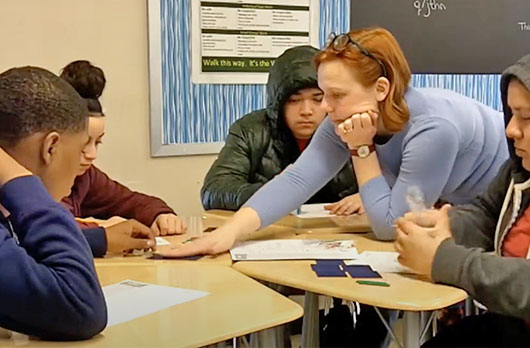
The project is developing an interdisciplinary graduate program addressing issues of climate related risk and resilience planning and decision-making in the southeast US.

This project looks for large scale impacts of such a widespread, sustained-over-time experience on students, teachers, schools and communities.

The project studies learning gains and attitudinal changes among students. TERC’s evaluation works with faculty to explore implementation, usability, and the potential for sustainability and spread.

MMTP supports the improvement of STEM teaching and learning in a large, urban district, by providing experienced teachers with opportunities to earn micro-credentials as they acquire additional content knowledge for teaching, engage in classroom-based action research, and assume instructional leadership roles.

The Life on Earth project created software for a multi-touch table to help museum visitors explore biodiversity and evolution using data from the Tree of Life, Encyclopedia of Life, and other databases.

CLiPSE worked to develop a network of partners to conduct climate literacy education across the Southeast US.

ARISE project supported faculty in 14 STEM departments to use research based instructional strategies (RBISs) to improve how STEM courses are taught and evaluated at the University of Nebraska, and to conduct research on the change process.
